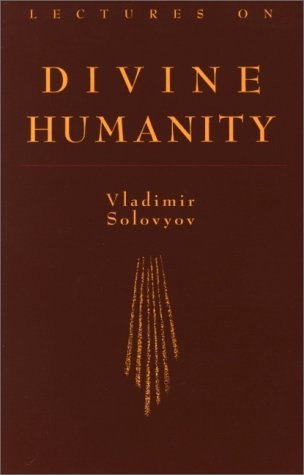What do you think?
Rate this book


192 pages, Paperback
First published February 1, 1878
Az irodalom visszavág (2) részében említi Nényei Pál ezt a kötetet, méghozzá a Sátán és Jézus vonatkozásában. Én meg gyanútlanul feldobtam a várólistámra, és azzal a lendülettel ki is sorsoltam kihívás miatt. Úgyhogy bár 3 hét alatt, de végigrágtam magam ezeken az előadásokon.
Anno, amikor még volt időm és energiám a John Green-féle crash course-okat nézni, az egyik legérdekesebb videó arról szólt, hogy a filozófiában milyen megközelítések vannak Isten létezésére vonatkozóan. (felirat ajánlott, mert iszonyú gyorsan beszél…) Némelyik érvet kifejezetten gyermetegnek éreztem. Kíváncsi voltam, hogy mit mond erről egy 19. század végi orosz filozófus. Meg eleve maga a fogalom, hogy Istenemberség, már csak a nevéből adódóan is érdekesen hangzik.
Nem állítom, hogy mindent megértettem volna, ami le volt írva. Az utolsó harmadára egyenesen alig értettem már valamit. A fő következtetések megvoltak, csak az úton vesztem el közben kicsit. A célja az egésznek, hogy filozófiai szinten levezetett fogalmakat, eszméket, létformákat megfeleltessen a keresztény elveknek mint például a Szentháromság. A helyzet iróniája, hogy ettől függetlenül nem marad teljesen az ortodox kereszténység vonalán, ami miatt anno a szövegek közlése is csúszott időben, meg átírattak Szolovjovval részeket. Vannak benne nagyon érdekes gondolatok, amiket laikus ésszel is egészen könnyen el lehet érni. Mint például a pozitív és negatív semmi. Azt még nem tudom, hogy mit fogok megőrizni ezekből a gondolatokból. Valamiféle jegyzetem van belőle, ha esetleg valamiért később majd szükségem lenne rá. De ez a fa jóval keményebb volt, mint a Szeretet nélkül semmi vagyok. Most egy kicsit örülök, hogy vége…